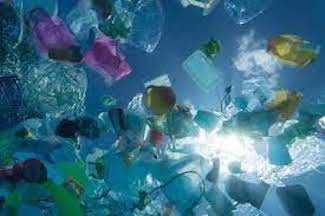Around the world, it’s generally recognized by the public that we’re facing a dire situation with the accumulation of plastic waste in our environment – particularly in our seas. Perhaps it’s time to consider whether the reason we’ve made so little headway in tackling this problem is that our programs to combat plastic pollution tend to focus on only two things: proposals to ban various single-use plastics, and on recycling. It doesn’t appear these two together will be enough.
Single-use plastics don’t include the lost and discarded fishing gear which now makes up half of the plastics in the ocean. Of course, eventual bans on single-use items will be tremendously helpful, but because they don’t impact the fishing industry, they won’t get us to where we need to be. Also, historical successes in reducing plastic waste with recycling programs are not very impressive. Here in Canada, we’ve been recycling for decades, but today only about 10% of the plastic waste collected is actually recycled.
We need to get much bolder in adopting measures to fight this problem.
Ultimately, with our growing population, we need to find ways to stop the gradual accumulation of plastics in our environment, and to become a truly zero-waste (or circular) economy. This will need to include a greater use of reusable containers, and measures to reduce the production of disposable plastics. Much easier than managing waste is finding ways to not create it in the first place. It means thinking about packaging. It means thinking about businesses’ role in managing the waste it creates. It means taking what’s left at the end of the process that can’t be recycled any other way, and burning it for energy.
These and similar measures are how Sweden is now able to recycle 99% of its household waste.
With the present scale of plastic production, recycling by itself won’t do it. In North America, we produce 500 million plastic drinking straws per day. Or consider that the world’s population consumes approximately 1 million plastic bottles every… minute! If we were to optimistically (and unrealistically) hope that only a half of 1% of these end up in the ocean, that works out to over 7 million bottles per day. And those are just a couple of products.
Is it any wonder that if present trends continue, by 2050, there will be more plastic in the ocean than fish, if measured by weight. Obviously we need to do things differently. If whales, dolphins, sea turtles, and birds keep dying with stomachs full of plastic, our own deaths can’t be far behind.
So how is Sweden able to set such a great example for the rest of the world? Their system can be costly, and it isn’t perfect, but it’s constantly improving and is putting the nation on course to achieving a true zero-waste society. It means home and business owners sorting and separating materials, which then go to different waste-management systems, like incinerators and recycling, and a small amount (less than 1%) to landfills. Swedish law also makes the producers responsible for costs related to collecting and recycling or disposing of their waste products.
What’s perhaps most important is that what decades ago was largely seen as strict rules for waste disposal has developed into a society with what’s been called a waste-hierarchy mindset well ingrained. This drives new technological innovations that continue to reduce environmental impact. So, this is difficult, but it can be done. The rest of us urgently need to learn from Sweden’s experience.
As for the other 50% of plastics in the ocean, good ocean health can only come about when we address the ravages of the fishing industry. The first part of it is how much we pull out of the oceans – far beyond anything that could be called sustainable. The second concerns what we leave behind, including all that fishing gear. The Global Ghost Gear Initiative (about which we’ve written here) is a good start. But I think that our behaviour as consumers needs to become the real driving force for change.
The situation is now so dire that it’s not a stretch to suggest that, unless you live in a part of the world where food security makes you reliant on seafood, you ought to avoid eating anything that comes out of the ocean for the foreseeable future. We need to give the oceans a fighting chance at recovery. And time is short. Part of that means letting fish stocks recover and then keeping our overall catch at a sustainable level. But another part is stopping the accumulation of all that discarded fishing gear that is so harmful to ocean life.
For The Orca’s Voice,
Dani, Canadian Cetacean Alliance



Leave a Reply